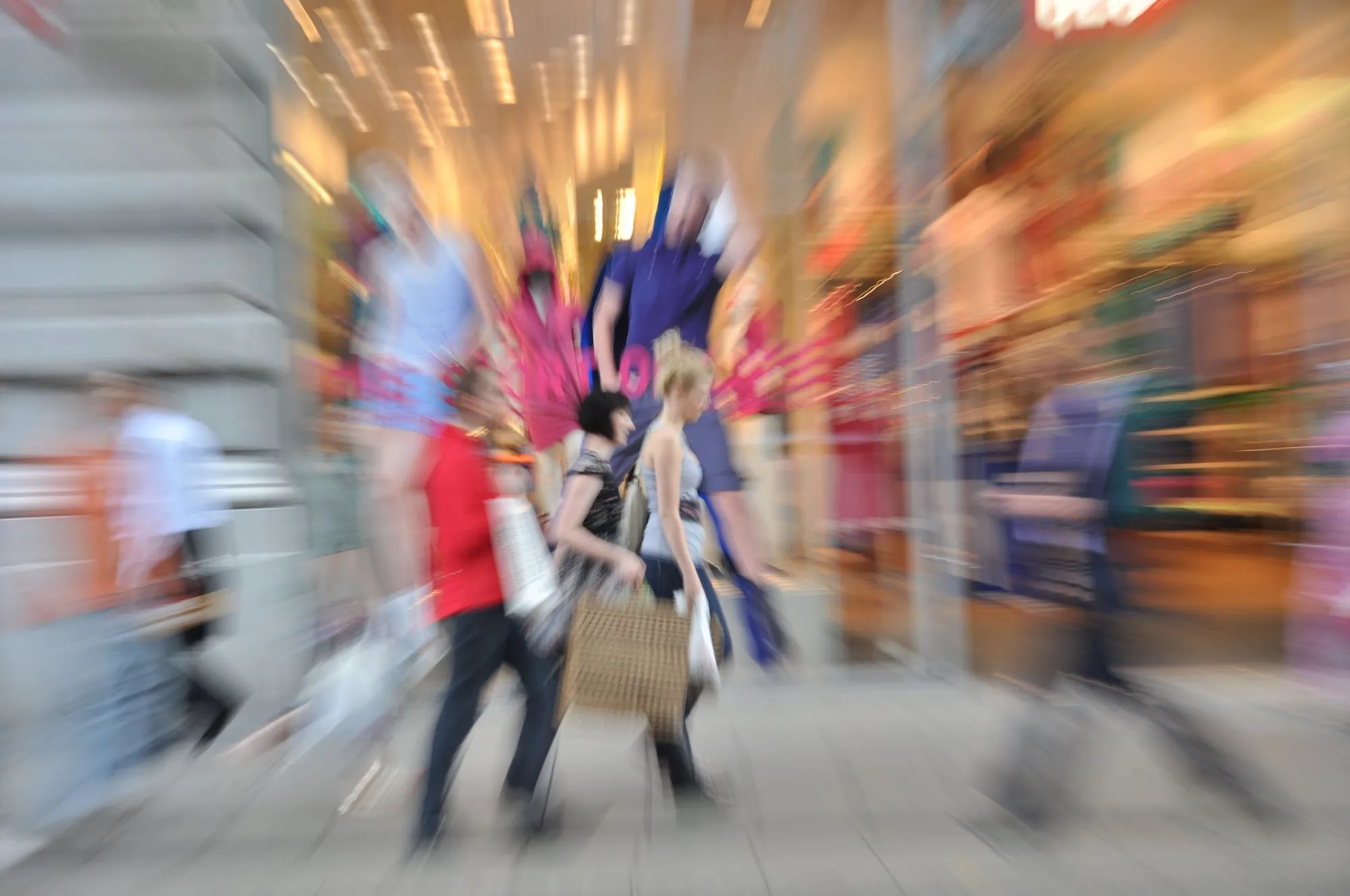Your basket is currently empty!
Tag: article

What’s the Matter with Fast Fashion and Why Bother?
In recent years, the term “fast fashion” has gained notoriety, shedding light on the dark underbelly of the clothing industry. But what exactly is fast fashion, and why should we be concerned? You can read about its history here but in this post, we’ll delve into the detrimental impacts of fast fashion. Additionally, we’ll explore how Vestya Shop is differentiating itself from this harmful trend, offering a sustainable alternative for conscientious consumers.
Fast fashion refers to the rapid production of high volumes of clothing, designed to mirror catwalk trends and celebrity looks. Brands like Zara, H&M, and Shein churn out new collections weekly, encouraging consumers to buy more, wear less, and discard often.
Fast fashion is a model of the global system built on overproduction, environmental disregard, and exploitative labour. While it promises affordability and style, the real cost is far greater than the price tag.
Fast fashion isn’t free. Someone, somewhere is paying.
– Lucy Siegle, Journalist and AuthorEnvironmental Impact
- Fashion is now the second-largest consumer of water globally, a major contributor to pollution, and a driver of unsustainable consumer habits. If we continue down this path, by 2050, the fashion industry could consume 25% of the world’s carbon budget (Ellen MacArthur Foundation).
- Fast fashion contributes to water pollution, with the World Bank reporting that textile dyeing is the second largest polluter of clean water globally. Also, many garments are made from synthetic fibers like polyester, which take 200+ years to decompose and release microplastics into our waterways.
- The industry produces 10% of global carbon emissions, more than all international flights and maritime shipping combined (UNEP, 2019).
- The Ellen MacArthur Foundation estimates that the fashion industry consumes more energy than the aviation and shipping industries combined, contributing to climate change and environmental degradation.
- One cotton T-shirt can use up to 2,700 litters of water to produce—the equivalent of what one person drinks in 2.5 years.
Waste and Disposal
- Fast fashion encourages a culture of disposability, with the average consumer now purchasing 60% more clothing compared to 2000, but keeping each garment for half as long, according to McKinsey & Company.
- Over 100 billion garments are produced globally each year, with 92 million tons of clothing ending up in landfills annually (Earth.org, 2023).
- The Environmental Protection Agency (EPA) estimates that 16 million tons of textile waste are generated in the United States alone each year, with the majority ending up in landfills or incinerators.
Human Rights and Labor Exploitation
- The International Labour Organization (ILO) reports that an estimated 170 million children are engaged in child labour, with many working in the garment industry in developing countries.
- Sweatshop conditions, characterized by long hours, low wages, and unsafe working conditions, are prevalent in many fast fashion supply chains, as highlighted by numerous investigative reports and documentaries.
The fashion industry is a major contributor to the destruction of the planet, and it is our responsibility to take action.
– Stella McCartney, Fashion DesignerBut there’s good news: We can choose differently. The power lies in our decisions. Fast fashion is a system. But systems can be changed and at Vestya, we’re proud to be part of the solution! Here’s how we’re challenging the fast fashion status quo:
Made Only When You Order
Unlike fast fashion, we don’t overproduce or stockpile. Our print-on-demand model ensures that every item is made only when it’s ordered, drastically reducing waste and unsold inventory.
Eco-Friendly Materials
We choose textiles with low water impact and high sustainability standards, such as:
- 100% organic cotton: Grown without harmful chemicals and with far less water.
- Recycled fabrics: Including polyester made from plastic bottles and cotton from post-production waste.
- All garments are GOTS 5.0 certified, vegan, and printed with water-based inks.
Transparency and Ethics
We work exclusively with TPOP, a French supplier known for their ethical and ecological practices, plastic-free packaging, and use of carbon-neutral postal services.
Giving Back to Nature
We go a step further by donating 15% of each sale to Movimento Gaio, a local environmental group that restores native forests and reclaims biodiversity in Portugal.
Support for Artists & Conscious Creators
We collaborate with independent designers and artists, providing them a platform to share their vision. Our goal is to offer more than clothing—we want to create a community of conscious creators and consumers.
🌿
In conclusion, the detrimental impacts of fast fashion are undeniable, encompassing environmental degradation, human rights abuses, and excessive waste. However, by choosing brands like Vestya Shop, consumers can make a positive difference. With our commitment to sustainability, ethical production, and conscious consumption, we offer a better alternative for those who seek to align their values with their fashion choices. Together, we can reshape the fashion industry and create a more sustainable future for all.
* Featured photography by Fernando Matoso
